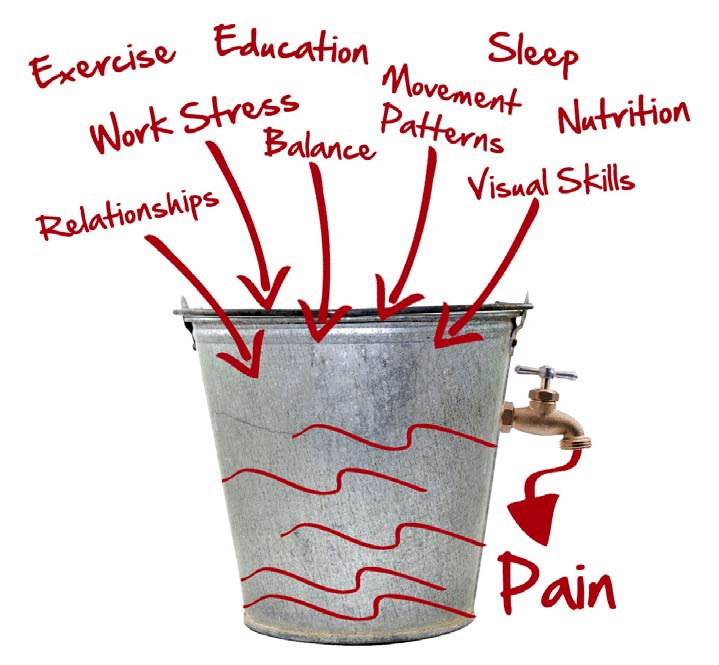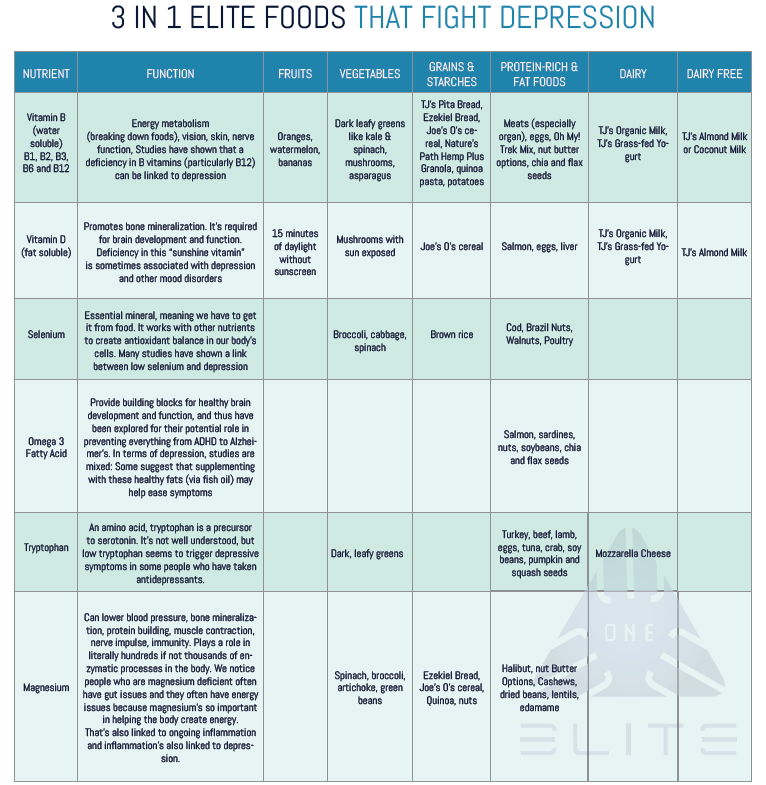BEAT THE HOLIDAY BLUES – FOUR NATURAL WAYS TO AID DEPRESSION
Share This

BEAT THE HOLIDAY BLUES – FOUR NATURAL WAYS TO AID DEPRESSION
When we have depression, it can be difficult to know what to do with ourselves, and how to heal from the inside out. Depression saps our energy and motivation to do things, compromising our health, our wallets, and our hope for recovery.
The important thing to know, though, is that it’s not all just in your head. Depression can make your body feel dull, heavy, even achy or sore in acute places. Getting through the day can be like walking through quicksand. Your brain may feel foggy, and thoughts can become impaired, even feel as if the brain has slowed down..” Finding depression-friendly pastimes may even seem tricky, but it doesn’t have to be.
There is hope. Amazing companies like Achieve TMS are on your side. Their natural relief from TMS’ magnetic pulses is a great first start to get the neurons firing and start the healing. Achieve TMS’ technicians do an amazing job of making sure each and every patient is well cared for. While on this road to recovery, movement and proper nutrition can be very helpful tools when managing depression. Choosing healthy habits (we recommend choosing one at a time) is cost effective, comes in a variety of forms, and can still be an option on days when fatigue, tiredness and sadness sticks you firmly to your bed.
Stress and the Worsening of Depression
Our bodies and our minds are equipped to handle only so much stress. The amount of stress placed on the body and mind is called allostatic load. Allostatic Load is the wear and tear on the body which grows greater as we become exposed to repeated or chronic stress.
As our allostatic load grows greater so does our visible and latent signs of stress until you reach allostatic overload. When we reach allostatic overload, allostasis begins to go awry sending the body signals to remove or lessen the amount of stress to regain balance. This is when injury, fatigue, disease and illness begin to set in.
A conceivable way to think of allostatic load is like a bucket. The more “things/stress” you put into the bucket, the fuller it becomes until it eventually overflows. The demands of life and depression as a whole, can definitely be a major contributor to filling up the bucket to the brim, but so can things like poor or infrequent movement, nutrition, weak eye muscles, and so much more.

*Adapted from Z-Health Performance
As the bucket fills, so can inflammation in the GI tract, which is where the absorption of all our nutrients occurs. This has been linked to the worsening of depression.
Serotonin, the ‘feel good’ chemical in our brain is made in the gut. If our gut is malfunctioning due to inflammation, then your ability to produce serotonin may also be compromised. In fact, depressive and anxiety disorders are often diagnosed with indigestion as a common symptom for this very reason.
Depression Treatment is More than Just Medication
Sometimes, it’s just not enough to focus on the mental and emotional aspects of depression. A holistic and progressive approach to depression, including total body health, can work wonders for alleviating the symptoms and byproducts of depression.
We know all the basic self-care advice, but it can feel a million miles away from where we are, but is so important to do things that are beneficial to you.
Below are FOUR natural ways to aid depression and decrease your stress bucket:
1. BREATHING – DIAPHRAGMATIC
The average person takes anywhere from 15,000 to 25,000 breaths per day. That’s a lot of breathing! Improper breathing mechanics can lead to increased anxiety and symptoms of depression. Try this diaphragmatic breathing drill, begin breathing more efficiently and circulate a more well-balanced oxygen to CO2 ratio throughout your blood to help heal your body and mind.https://www.youtube.com/embed/riLYJMa7l3g?feature=oembed
2. VISION – THE PENCIL PUSH-UP
Your brain receives 150 million neural signals/second from your eyes. If your visual system is even slightly impaired, it may comprise your road to recovery. We recommend starting with basic eye strengthening drills like the pencil push-up.https://www.youtube.com/embed/tVL-Ygi3y9o?feature=oembed
3. MOVE
When you have depression or anxiety, exercise often seems like the last thing you want to do. But, once you get motivated, exercise can make a big difference. Movement is one of the most effective ways to improve your mood, especially if you have depression. Numerous studies have shown exercise to be as effective, or even more effective than, antidepressant medications. Movement also happens to be free, and its major side effects are all positives, (such as decreased blood pressure, weight maintenance, improved strength, better sleep, and more).
There are so many options to choose from. You can revisit sports or activities you played as a child like throwing the football around outside, playing ping-pong, or joining a local soccer league.
What’s more is that movement is often a prosocial behavior. You can go on a stroll with a neighbor, or, garden with a friend, or go on a hike with a loved one.
You could even try our favorite movement drills the turkish sit up. Start with no weight to begin with, and as your strength builds over time, load more weight into your hand. Once you’ve mastered the turkish sit up, you can move onto it’s progressions until you’ve reached the full turkish get-up. Make this a fun experiment with your body. We highly recommend beginning with no weight with 3-6 repetitions per side for 3 sets.
Turkish Sit Uphttps://www.youtube.com/embed/tUbhHYFnNZQ?feature=oembed
Progressions – Half Kneelinghttps://www.youtube.com/embed/ymNql75jvCI?feature=oembed
FULL Turkish Get Uphttps://www.youtube.com/embed/3GFEN1sy7rQ?feature=oembed
4. EAT WELL
Depression can leave you with a loss of appetite, but it is so important to get proper nutrition as it can help you heal and reduce feeling stress and anxiety. How you eat and what you eat can make a big difference too.
Try to take the time to enjoy the foods you eat in a pleasant environment with delightful conversations, with people you like. Cook, or go out to dinner and share a meal with a close friend, or even try to host a casual get together like tea and snacks.
Your selection of foods can even affect your propensity to develop or exacerbate depression which is why it is critically important to choose whole, healthy foods. In fact, Vitamin D and magnesium deficiency can be linked to a trajectory of depression from clinical to mild diagnoses. Magnesium deficient people often have gut issues and they often have energy issues. Magnesium is so important in helping the body create energy. While Vitamin D helps spur healthy brain function.
If changing the way you eat is something you are truly interested in, we recommend a gradual approach. Choose ONE new habit or integration to start with, build more healthy habits over time. We also recommend that you avoid supplements and opt for whole foods as a means to get all of your nutrients. Vitamins and minerals in food work synergistically and our body recognizes them more readily than in supplement form. The table below includes nutrient dense foods and how they can positively affect those living with depression.

TJ’s = Trader Joe’s
*For more insight on a detailed nutrition program, check out Fuel Your Performance
THERE IS HOPE
While overcoming or mastering life with depression can seem like a steep mountain to climb, remember that at the summit, the view will be breathtaking. You can start with some of our suggestions, or, use them as inspiration to create your own road to recovery. We recommend you choose ONE new lifestyle habit and practice over a few weeks. Once you’ve mastered the first habit, choose another new habit. Take a gradual approach and rediscover things that you enjoy. Start small and build over time. If a 30 minute jog feels impossible, try a walk around the block first. Keep making small, achievable changes; this approach may provide great hope and rapid changes to your health and happiness.
If you need any further assistance in attempting a new habit change. Please reach out to us at abe@3in1elite.com or visit Fuel Your Performance
